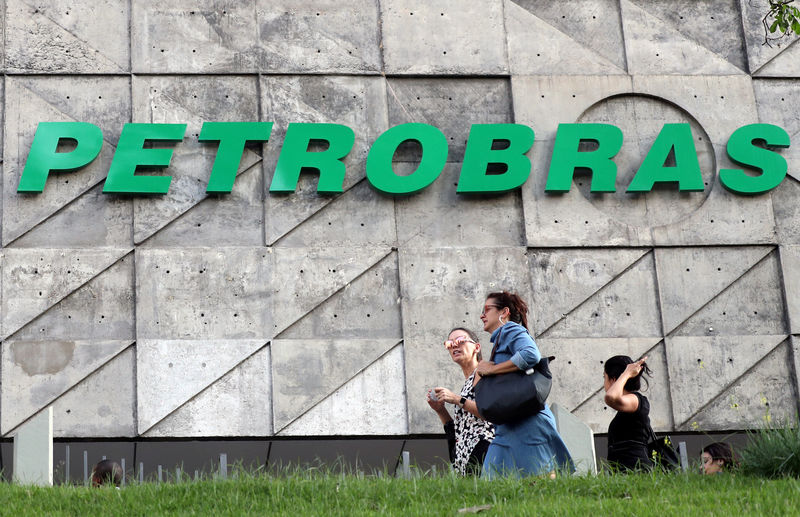This post was originally published on this site
https://i-invdn-com.akamaized.net/trkd-images/LYNXMPEFAS0GI_L.jpg
By Tatiana Bautzer and Carolina Mandl
SAO PAULO (Reuters) – Brazil’s state-controlled oil company Petroleo Brasileiro SA (SA:) has selected four groups for the second round of bidding for four refineries up for sale, including China’s Sinopec, Abu Dhabi’s state investor and two Brazilian firms, according to four people with knowledge of the matter.
Sinopec, Abu Dhabi’s Mubadala Investment Co and Brazil’s Ultrapar Participações SA (SA:) and Raizen were chosen to go through to the next phase, they said. Brazil’s Raizen is a joint venture between Cosan SA (SA:) and Royal Dutch Shell Plc (L:).
Petrobras, as the oil company is known, received non- binding offers in early November for the first block of refineries it plans to sell. It selected the groups that will progress to the second round last week, the sources added, declining to be named as the details are confidential.
The binding offers are expected to be delivered by mid-January, two of the sources said. The first block of refineries is the largest one, with a combined capacity of 961,000 oil barrels per day, or 40% of Brazil’s total refining capacity.
Ultrapar, Raízen and Mubadala declined to comment. Petrobras and Sinopec did not immediately comment on the matter.
According to the sources, Ultrapar and Raízen may deliver bids for the two refineries in the southern region, REFAP and REPAR, and for RNEST, in the northeastern state of Pernambuco.
China’s Sinopec and Mubadala plan to bid for RLAM, Brazil’s oldest refinery, in the northeastern state of Bahia, the people said. RLAM needs significant renovations, and Sinopec is interested in forming a consortium with a Chinese construction company. Mubadala is expected to structure a deal involving Spanish oil company Cepsa, which has Mubadala and Carlyle Group (NASDAQ:) as investors, two of the sources said.
According to rules set forth by Brazil’s antitrust watchdog Cade, bidders can only acquire one refinery in each region.
CONSORTIA
The sources said companies approved for the second round are in talks to create consortia with commodity traders such as Glencore (LON:) and Vitol, that signed non disclosure agreements at the start of the process and are allowed to join the groups in the binding phase. Vitol and Glencore declined to comment.
Operators of pipelines are also in talks to potentially join groups to operate the logistics assets that Petrobras will sell with each refinery, such as terminals and oil and fuel pipelines, they added.
Among these groups are Canada’s Brookfield, which owns gas pipeline network company NTS, previously sold by Petrobras, the sources said. Brookfield declined to comment.
Financial firms such as Canadian pension funds CPPIB and Caisse de Depot et Placement du Quebec (CDPQ), besides Singapore’s GIC, could also join, they said. The companies did not immediately comment.
Oil behemoth Saudi Aramco, which had signed a non disclosure agreement, dropped out of the process, the sources said.
Brazil’s history of imposing fuel price controls and a privatization model that will leave Petrobras with a strong presence in Brazil’s richest region, the southeast, have reduced the expected competition for the refineries.
Initial estimates that the oil company could fetch up to $18 billion for the refineries have been reduced to around $10 billion.
SECOND BLOCK
A second block of four refineries, which is expected to be put up for sale next year, is much smaller than the first, with a total capacity of roughly 200,000 barrels per day.
REMAN, in the state of Amazonas, has attracted the interest of regional fuel distributor Atem Distribuição de Petroleo, one of the sources said.
India’s conglomerate Essar, which has exploration operations in India and refining and fuel distribution assets in Britain, could also bid for one of the units in the second block, the sources added.
EIG Global Energy Partners is also said to be eyeing REGAP, in Minas Gerais, according to one source.
Atem, Essar and EIG did not immediately respond to requests for comment.

